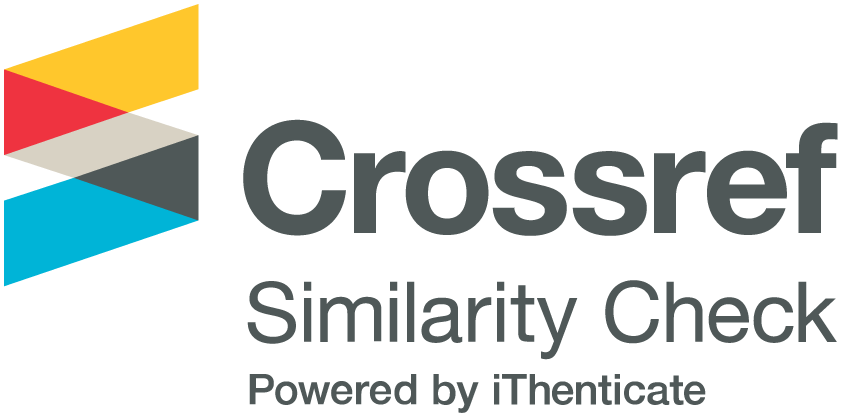Judgement, Common Sense and Discernment: Contributions from Humanistic Thinking to the Social Professions
DOI:
https://doi.org/10.54790/rccs.11Keywords:
classical virtues, moral discourse, practice wisdom, professional judgment, social professions, humanistic thinking, autonomyAbstract
This paper reviews definitions and usage of judgement and common sense as time-tested criteria in decision-making. It looks at how scholars in different disciplines and professions have approached judgement and professional wisdom, (to include tacit knowledge and common sense). It advocates teaching, reflecting and dialoguing on ethical principles and the incorporation of the classical virtues in discussions to increase social workers and other professionals’ full understanding of the complex meaning of these terms. The paper does not advocate any single approach to decision-making and acknowledges the quandaries of professionals. However, the paper builds the case that practitioners and academics can use good judgement to enhance, not abandon, their commitment to fairness and justice. Professionals, in the sense of those who belong to a discourse tradition (MacIntyre, 1984), can successfully overcome prejudicial assumptions relying on discernment developed through study, reflection and lived experiences. Finally, it is acknowledged that social work policies and practice parameters are reliant on ethical and legal frameworks. Philosophic and legal reasoning discourses are discussed as offering worthwhile perspectives. The paper strives to draw on the humanistic and multidisciplinary approaches to «knowing» to enhance the wisdom upon which the all human professions build.
Downloads
Metrics
References
Anastas, J. W. (2014). The Science of Social Work and Its Relationship to Social Work Practice. Research on Social Work Practice, 24(5), 571-580. https://doi.org/10.1177/1049731513511335 DOI: https://doi.org/10.1177/1049731513511335
Banks, S. (2006). Ethics and Values in Social Work (3a edición). London: Palgrave Macmillan.
Bennion, F. (2000). Distinguishing Judgment and Discretion. 2000.042. https://web.archive.org/web/20170808125315/http://www.francisbennion.com/pdfs/fb/2000/2000-042-distinguishing-judgement-and-discretion2.pdf
Brekke, J. S. (2012). Shaping a Science of Social Work. Research on Social Work Practice, 22(5), 455-464. https://doi.org/10.1177/1049731512441263 DOI: https://doi.org/10.1177/1049731512441263
Cullity, G. (2011). Moral judgement. En The Routledge Encyclopedia of Philosophy. Taylor y Francis. https://doi.org/10.4324/9780415249126-L053-2 DOI: https://doi.org/10.4324/9780415249126-L053-2
Deck, P. (2016). Ethics-Law and social work: Reconciling conflicting ethical obligations between two seemingly opposing disciplines to create a collaborative law practice. Western New England Law Review, 38(2016). https://digitalcommons.law.wne.edu/lawreview/vol38/iss2/3/
Evans, T. (2013). Organizational Rules and Discretion in Adult Social Work. British Journal of Social Work, 43, 739-758. https://doi.org/10.1093/bjsw/bcs008 DOI: https://doi.org/10.1093/bjsw/bcs008
Flexner, A. (1915). Is social work a profession? Ponencia presentada en la 42.ª sesión anual de la Conferencia Nacional de Organizaciones Benéficas y Correccionales, celebrada en Baltimore, Maryland. http://www.socialwelfarehistory.com/programs/is-social-work-a-profession-1915
Flexner, A. (1925). Medicine: A comparative study. New York: Macmillan.
Gil Parejo, M. (2004). El protagonismo de la organización colegial en el desarrollo del trabajo social en España. Madrid: Siglo XXI.
Gross, N. y Alan Jones, R. (eds.) (2004). Durkheim Philosophy Lectures. Notes from the Lycee de Sens Course 1883-1884. Cambridge University Press.
Hammond, Kenneth R. (1996). Human Judgement and Social Policy. Irreducible Uncertainty, Inevitable Error, Unavoidable Injustice. New York: Oxford University Press. DOI: https://doi.org/10.1093/oso/9780195097344.001.0001
Heider, F. (1958). The Psychology of Interpersonal Relations (p. 5). New York: Wiley. https://doi.org/10.1037/10628-000 DOI: https://doi.org/10.1037/10628-000
Houston, S. (2003). Establishing Virtue in Social Work: A Response to McBeath and Webb. British Journal of Social Work, 33, 819-824. https://doi.org/10.1093/bjsw/33.6.819 DOI: https://doi.org/10.1093/bjsw/33.6.819
Jujarvi, S., Kallunski, E. y Luostari, H. (2020). Ethical Decision-Making of Social Welfare Workers in the Transition of Services: The Ethics of Care and Justice Perspectives. Ethics and Social Welfare, 14(1), 63-83. https://doi.org/10.1080/17496535.2019.1710546 DOI: https://doi.org/10.1080/17496535.2019.1710546
Lash, S. (2000). Risk culture. En B. Adam, B. Beck y J. Van Loon (eds.). The risk society and beyond. Critical Issues for social theory (pp. 47-62). London: Sage. https://doi.org/10.4135/9781446219539.n2 DOI: https://doi.org/10.4135/9781446219539.n2
Levit, N. (1990-1991). Practically unreasonable: critique of practical reason. Northwestern University Law Review, 85(2), 494-518.
MacIntyre, A. (1984). After Virtue. A Study in Moral Theory. Indiana: University of Notre Dame Press.
Martinez-Brawley, E. y Gualda, E. (2006). US/Spanish comparisons on temporary immigrant workers: implications for policy development and community practice. European Journal of Social Work, 9(1), 59-84. https://doi.org/10.1080/13691450500480771 DOI: https://doi.org/10.1080/13691450500480771
Martinez-Brawley, E. y Gualda, E. (2011). Latinos in the US and Spain: demographics, designations and political identities. European Journal of Social Work, 14(2), 155-175. https://doi.org/10.1080/13691451003744366 DOI: https://doi.org/10.1080/13691451003744366
Martinez-Brawley, E. y Vazquez-Aguado, O. (2008). The Professionalization of Spanish Social Work: Moving closer to Europe or away from its roots? European Journal of Social Work, 11(1), 3-13. https://doi.org/10.1080/13691450701357257 DOI: https://doi.org/10.1080/13691450701357257
Martinez-Brawley, E. y Zorita, P. (2007). Tacit and Codified Knowledge in Social Work: A critique of Standardization in Education and Practice. Families in Society, 88(4), 534-542. https://doi.org/10.1606/1044-3894.3675 DOI: https://doi.org/10.1606/1044-3894.3675
Martinez-Brawley, E., Zorita, P. y Rennie, F. (2013). Dual Language Contexts in Social Work Practice: The Gaelic in the Comhairle nan Eilean Siar region (Outer Hebrides, Scotland) and Spanish in the Southwestern United States. European Journal of Social Work, 16(2), 187-204. https://doi.org/10.1080/13691457.2011.618117 DOI: https://doi.org/10.1080/13691457.2011.618117
Martinez-Brawley, E. y Zorita, P. M.-B. (2016). Philosophic thinking in social work: An analysis of thirty years of Social Work. Journal of Education in Social Work, 52:sup1, S6-S15. https://doi.org/10.1080/10437797.2016.1174650 DOI: https://doi.org/10.1080/10437797.2016.1174650
Martinez-Brawley, E. y Zorita, P. M.-B. (2017). Contemporary Social Work practice and education: A call for a re-examination of virtue ethics. Cuadernos de Trabajo Social, 30(1), 109-118. https://doi.org/10.5209/CUTS.49446 DOI: https://doi.org/10.5209/CUTS.49446
McCarthy, J., Alexander, P., Baldwin, M. y Woodhouse, J. (Eds.) (2010). Valuing Professional Practice. En J. McCarthy y P. Rose, Values-based health and social care: Beyond evidence-based practice (pp. 97-121). SAGE. https://doi.org/10.4135/9781446251591.n6 DOI: https://doi.org/10.4135/9781446251591.n6
McCarthy, J. y Rose, P. (2010). Values-Based Health & Social Care: Beyond Evidence-Based Practice. SAGE. https://doi.org/10.4135/9781446251591 DOI: https://doi.org/10.4135/9781446251591
McGhee, B. (2006). Aristóteles. The Man who mapped out sciences and formulated logic. En The Story of Philosophy (pp. 32-39). New York: Barnes and Noble Publishing.
Muller, J. Z. (2018). The Tyranny of Metrics. Princeton, N. J.: Princeton University Press. https://doi.org/10.2307/j.ctvc77h85 DOI: https://doi.org/10.2307/j.ctvc77h85
Munro, E. (2010). Learning to reduce risk in child protection. British Journal of Social Work, 40(4), 1135-1151. https://doi.org/10.1093/bjsw/bcq024 DOI: https://doi.org/10.1093/bjsw/bcq024
Nueva Enciclopedia Católica (2003). «Juicio» (pp. 21-27). Universidad Católica de América, Detroit: Washington, D.C.: Thomson/Gale; Gale Virtual Reference Library.
Parton, N. (2007). Constructive Social Work Practice in an Age of Uncertainty. En S. Witkin y D. Saleebey, Social Work Dialogues. Transforming the Canon of Inquiry, Practice, and Education (pp. 144-166). Alexandria, Virginia: Council on Social Work Education.
Posner, R. A. (1990). The problems of jurisprudence. Cambridge: Harvard University Press.
Preston-Shoot, M. (2014). Making Good Decisions. Law for Social Work Practice. Palgrave Macmillan. https://doi.org/10.1007/978-1-137-30243-4 DOI: https://doi.org/10.1007/978-1-137-30243-4
Polanyi, M. (1967). The tacit dimension. Garden City, NY: Anchor Books.
Polanyi, M. (1969). Knowing and being. Chicago: University of Chicago Press.
Shaw, I. (2014). A science of social work? Response to John Brekke. Research on Social Work Practice, 24(5), 524-526. https://doi.org/10.1177/1049731514543408 DOI: https://doi.org/10.1177/1049731514543408
Shaw, I. (2016). Science and social work: A sketch. European Journal of Social Work, 19(3-4), 336-353. https://doi.org/10.1080/13691457.2015.1074552 DOI: https://doi.org/10.1080/13691457.2015.1074552
Stewart, R. (11 de junio de 2019). Conservative Leadership Campaign Launch. Youtube. https://www.youtube.com/watch?v=Fc8aJGEvW9g&t=1274s
Swain, P. y Rice, S. (2009). In the Shadow of the Law. The Legal Context of Social Work Practice. Sidney: Federation Press.
Whitehead, A. N. (1919). The Organization of Thought. Address to the British Association for the Advancement of Science September 6, 1916. Recuperado el 18 de enero de 2022 de https://mathshistory.st-andrews.ac.uk/Extras/BA_1916_1
Downloads
Published
How to Cite
Issue
Section
License
Copyright (c) 2022 Emilia Martinez-Brawley

This work is licensed under a Creative Commons Attribution-NonCommercial-ShareAlike 4.0 International License.










